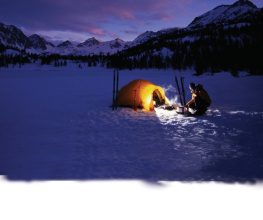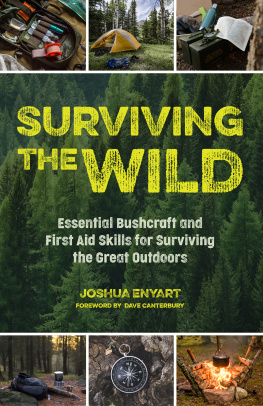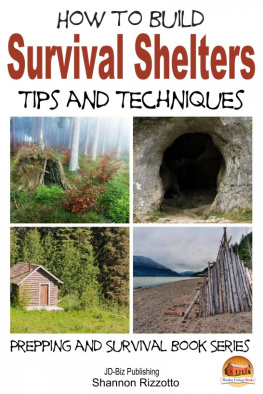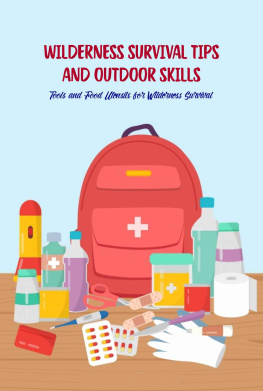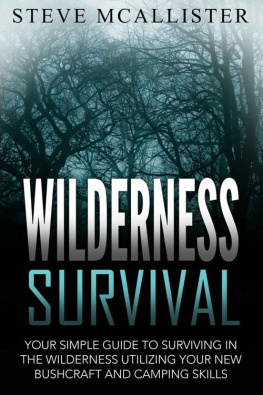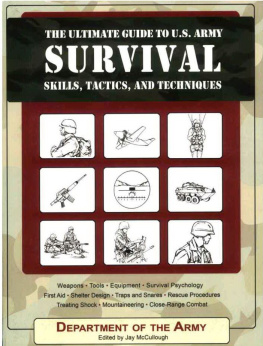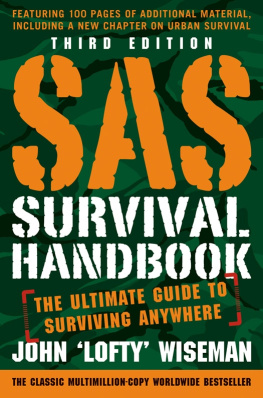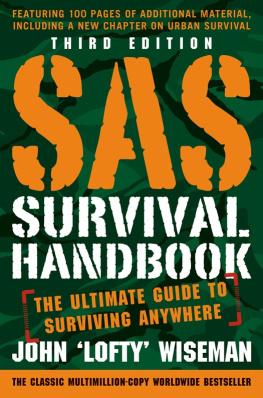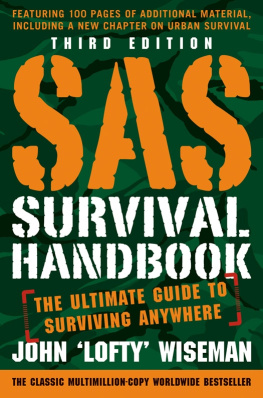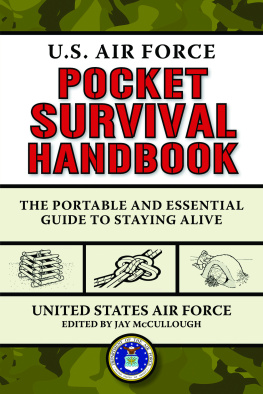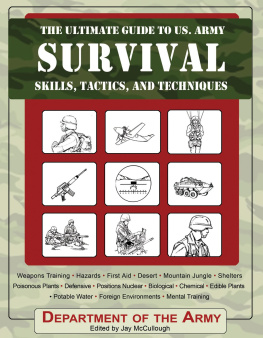CONTENTS
This digital edition first published in 2011
Published by
Amber Books Ltd
Bradleys Close
7477 White Lion Street
London N1 9PF
United Kingdom
Website: www.amberbooks.co.uk
Appstore: itunes.com/apps/amberbooksltd
Facebook: www.facebook.com/amberbooks
Twitter: @amberbooks
Copyright 2011 Amber Books Ltd
ISBN: 978 1 908696 05 2
ILLUSTRATIONS
Art-Tech
All rights reserved. With the exception of quoting brief passages for the purpose of review no part of this publication may be reproduced without prior written permission from the publisher. The information in this book is true and complete to the best of our knowledge. All recommendations are made without any guarantee on the part of the author or publisher, who also disclaim any liability incurred in connection with the use of this data or specific details.
www.amberbooks.co.uk

Other titles in this series:
SAS and Elite Forces Guide: Crisis Survival
SAS and Elite Forces Guide: Military Survival
SAS and Elite Forces Guide: Unarmed Combat

Website: www.amberbooks.co.uk
Appstore: itunes.com/apps/amberbooksltd
Facebook: www.facebook.com/amberbooks/
Twitter: @amberbooks
SURVIVAL
TECHNIQUES
SAS and Elite Forces Guide
Alexander Stilwell

INTRODUCTION
T he shock of being cut off from the regular supports of civilisation from food, water, shelter, warmth and companionship will vary according to your circumstances and training. Whatever your background or preparation for the situation in which you find yourself, it is important to get over the initial trauma quickly. Remember that the circumstances you are in are no different to those that men and women have known and survived for centuries, even to this day in remote areas throughout the world.

Although you may not be aware of it, you already have the necessary qualities to survive built in determination, perseverance, ingenuity and humour. All you need to do is to adapt them as quickly as possible to your new circumstances. You may not be used to having to go out and forage for food or to locate sources of water. But remember that the qualities and skills you use in finding and holding down a job, and in negotiating the best deal for yourself and your family in your daily life, are similar to those that men and women have always used to find shelter, warmth and food for themselves and their families.
As you adapt, you will find that if you take sensible precautions in a planned way your body will adjust as far as possible to the environment you are in. Your senses, somewhat dulled by urban comforts, will become sharper and your mind will begin to deal with planning your daily requirements.
If you hold on to your determination to survive, despite setbacks, you will begin to master your environment. By maintaining a positive attitude you will find the necessary will and energy to locate food, water and shelter, and to set about achieving rescue.
A thumbnail guide to survival
If you are cold, wet, hungry and maybe injured, your immediate priorities are to:
- Account for survivors.
- Carry out First Aid.
- Find the right clothing and survival equipment.
- Find shelter.
- Provide warmth, water and food.
- Rest.
You will be in a far better position to cope with your circumstances and plan a survival strategy once you have dealt with these necessities. The order you take them in will depend on your particular environment, and you will find guidance in the appropriate chapters in this book. If you are in a group, you can each be responsible for a task.
No matter how tired you are, set about collecting branches and wood to make a shelter (unless you have other materials to hand), make a fire, and take as much food and water as is appropriate, according to your available supplies. Remember not to eat too much if you have little water.
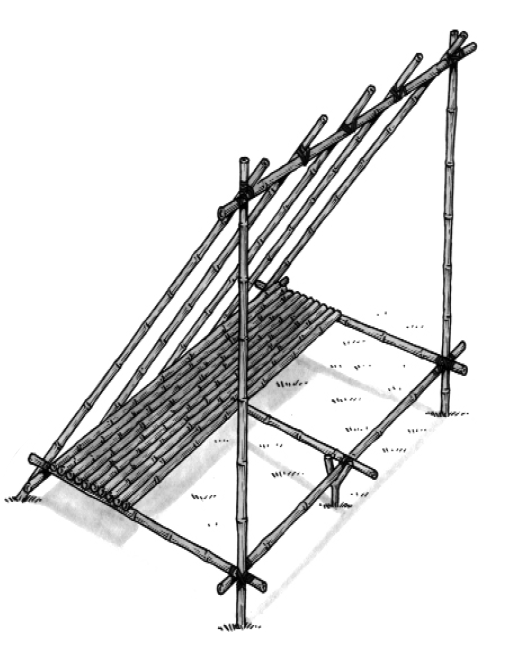
By constructing a shelter and providing yourself with warmth and sustenance you will greatly improve your morale and your ability to cope. You will also have made it possible to gain much-needed rest, which will make it easier to go about your various tasks.
Do not allow yourself to worry too much about the wider picture, since you will need all your concentration and energy for the immediate priorities. By putting one foot in front of the other and achieving things bit by bit, you will gradually surmount the problem.
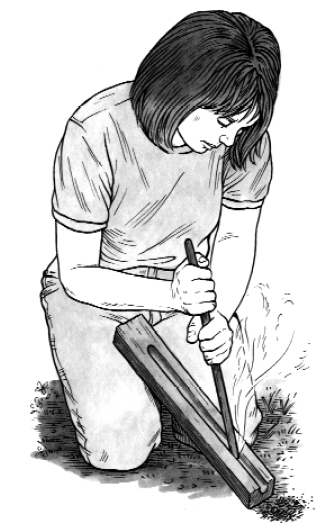
Plan for survival
Once you have answered your immediate wants, you will need to decide whether you should stay and wait for rescue, or travel in search of help and civilisation. If you are near a large object such as an aircraft, it will be much easier for rescuers to find you. If you are under a thick jungle canopy, however, you may need to travel so that you can either find a clear area in which to signal from or a place of human habitation.
Location
Try to pinpoint where you are. Are you near any recognised routes? If so, your chances of being found are good. If not, you may wish to consider moving to an area where you are more likely to be found.
Radio equipment
Check to see if there is a working radio, and try to establish contact.
Equipment
Draw up an inventory of equipment in your possession, and also any materials that may come in useful.

Supplies
Check your available supplies of food and water, and ascertain how far you are likely to be able to walk with what you have.
Physical condition
Check your own physical condition and that of others. You may need time to deal with wounds or recover your strength. You will need to weigh this up against the likelihood of being able to find sufficient food and water in the area you are in.
Weather
Do present conditions make it likely that a rescue search could be successfully mounted? If you plan to travel, what does the weather portend? Do you need to wait for better conditions?
Signalling
Check all available signalling equipment and have it ready to use as soon as possible. You do not want to miss your chance if an aeroplane suddenly appears overhead.
How to use this book
The first part of the book is divided into physical types of regions, namely Desert, Sea, Tropics, Polar and Mountain, with an additional chapter on how to cope with Natural Disasters, such as earthquakes and hurricanes. The second part gives more detailed information on particular aspects of survival, such as navigation or firemaking.
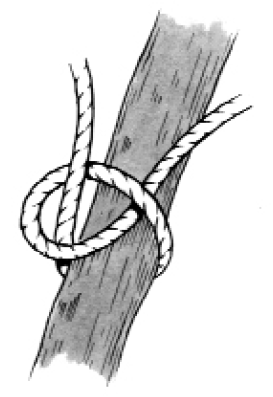
Next page
